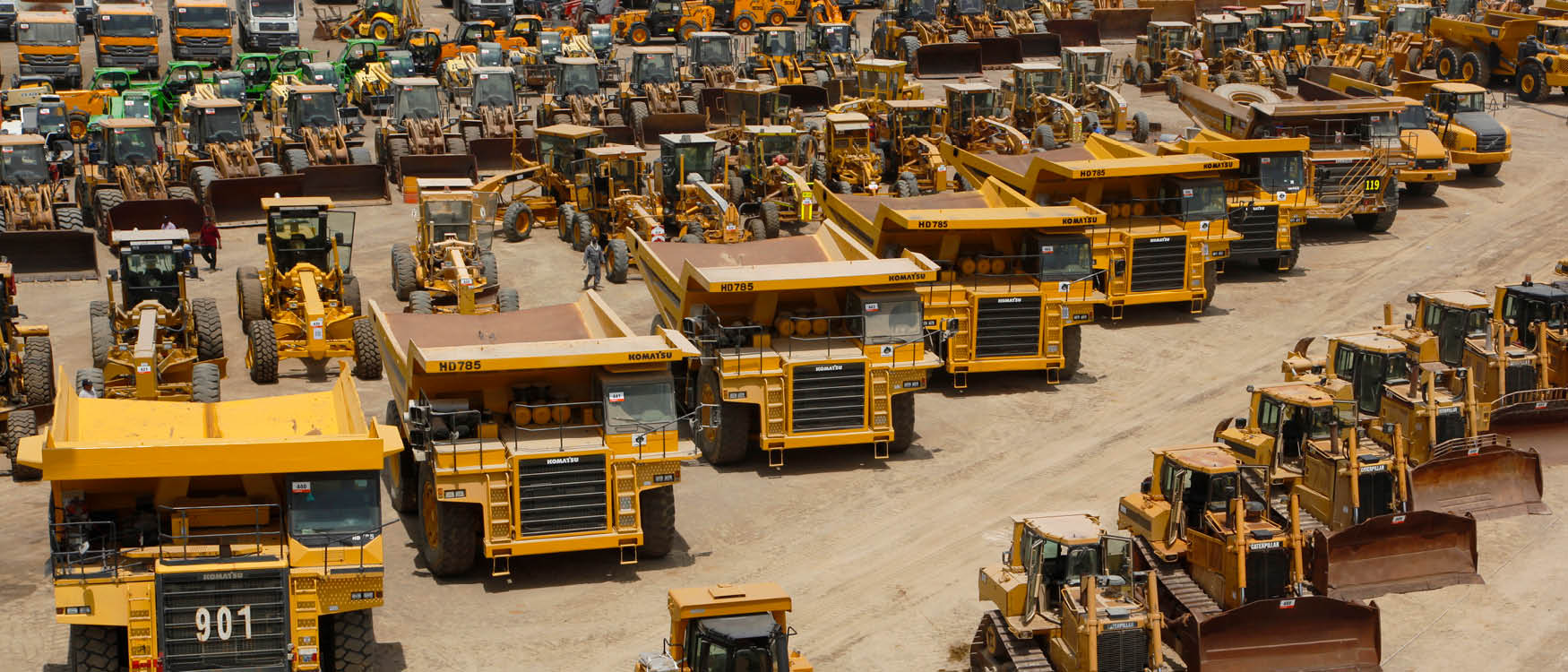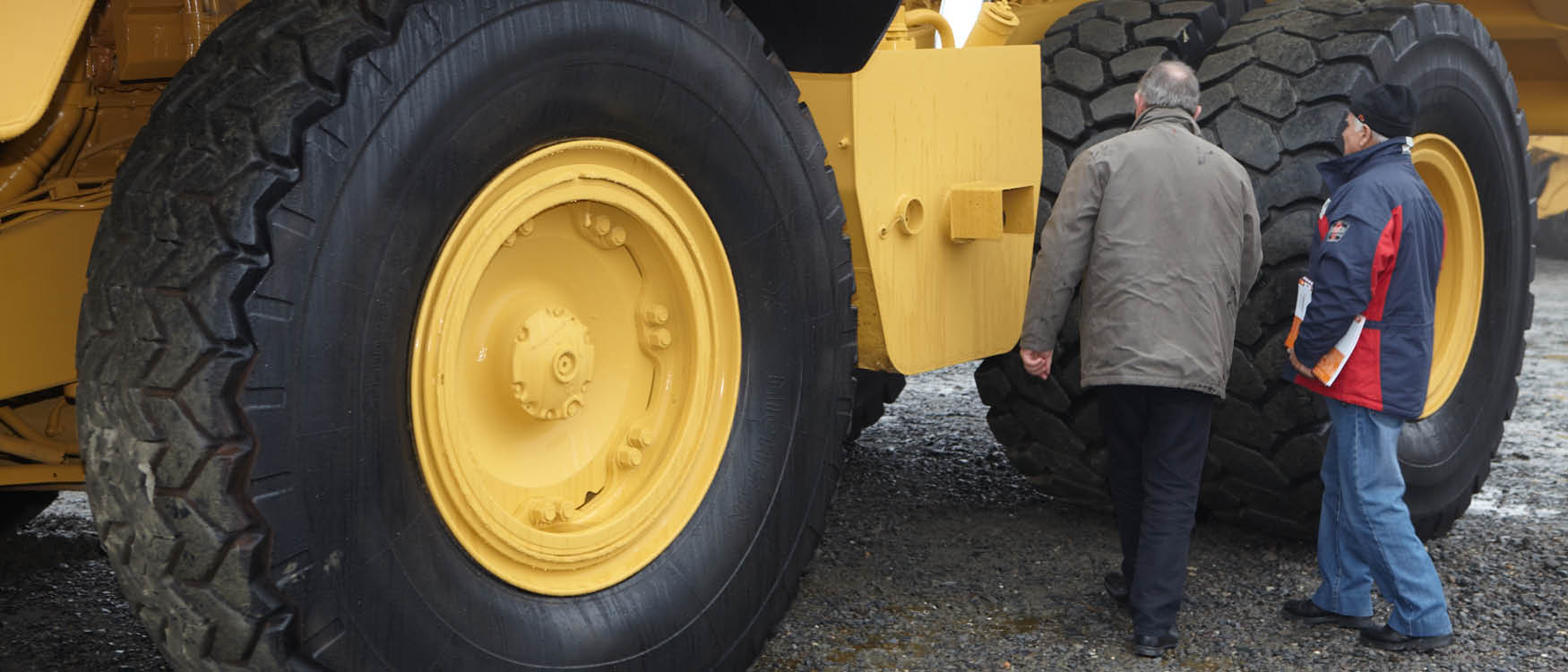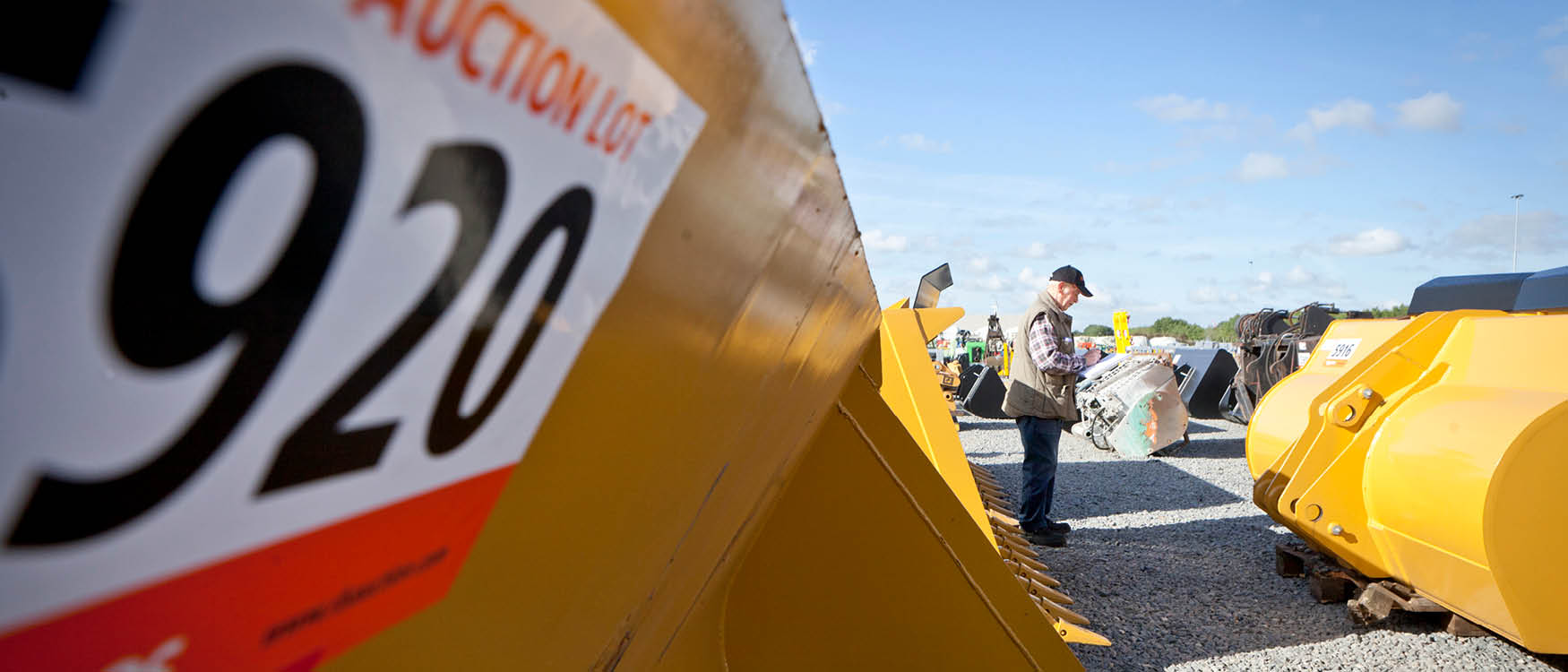COVID19 has accelerated the demand for e-commerce in the equipment industry
Matt Ackley, the Chief Marketing Officer, GM Platform Business, SVP Product Management at Ritchie Bros., has a long track record of success in the world of tech. Before he joined the auction company, Matt worked at several start-ups, including eBay and Google, that are synonymous with e-commerce and digital business. While the heavy equipment industry is undoubtedly different, Matt’s focus on digital transformation means he is now able to apply his learning from other areas of the digital world in a new setting.
“One thing is for certain,” Matt says with enthusiasm, “no industry is immune from digital transformation. Even industries that prized themselves on intrinsic human connection and knowledge – such as the medical industry – have seen huge digital advancements in recent years.”
Traditionally, the heavy equipment industry is viewed as a more conservative business, but this is an unfair judgment. The construction and mining sectors are arguably the perfect laboratories for the testing of digital technology such as connectivity and automation – as they tend to be controlled environments with limited public interaction.
In recent years, there has been a rapid acceleration in tech R&D from several heavy equipment manufacturers, including Volvo Construction Equipment. The industry may not be at the forefront of technological and digital advancements. Still, it is embracing the benefits on offer and integrating them into complex machinery to deliver surprising results.

E-commerce: the transformation
One of the most prominent digital trends in business is e-commerce. In 2019, worldwide e-commerce sales topped $3.5 trillion, an increase of approximately 18% from the year before. However, this year has boosted the figures even higher with the period between January and March 2020, seeing retail platforms undergo a six percent global traffic increase. Overall, retail websites generated 14.34 billion visits in March 2020, up from 12.81 billion global visits in January 2020. This is, of course, due to the global coronavirus pandemic, which has forced millions of people to stay at home to curb the spread of the virus. But it also represents a huge – and probably lasting – shift in buyer and seller behaviour.
Ritchie Bros. has been building its digital offerings since the late 1990s and hosted its first online auction in 2002. The company’s capabilities were further strengthened with the acquisition of Mascus in 2016 and IronPlant in 2017. Today online bids account for 75% of the company’s sales. Now, with the dramatic impact of COVID-19, Ritchie Bros. is taking the opportunity to accelerate its transformation and pivot 100% to an online business.
“I’ve been involved in digital marketing and online marketplace technology for 20 years,” says Matt, “and it’s thrilling to see them come to life at Ritchie Bros. It’s exciting to be involved at this particular time and be able to deliver new technologies and customer experiences to the heavy equipment sector.”

Data and insight
Through Ritchie Bros. and IronPlanet’s history – 60 and 20 years, respectively – the company has attracted a wealth of global data. This data can be used, among other things, to find the right audience for a piece of equipment, and by using modern advertising platforms (Facebook, Google), new buyers or repeat buyers can be attracted.
“Auctions are essentially dynamic pricing systems,” says Matt. “We can use this data in unique ways to understand how an auction is going to perform. We know ahead of time who’s looking at what and whether they’ve bought similar equipment in the past. This lets us make real-time marketing decisions before the auction even starts. We use computer algorithms to identify certain demand characteristics and adjust these characteristics ahead of the auction to find more buyers for a piece of equipment.”
As well as identifying and targeting buyers, Ritchie Bros. has also used data to help price equipment. In the past, this has been a time-consuming and challenging task. There are so many variables to take into account – model, condition, attachments, location – how can one identify what a piece of equipment will fetch in the marketplace? To solve this problem, Ritchie Bros., recruited a data scientist from eBay and looked at the challenge from a machine learning standpoint.
“This challenge of accurately pricing used equipment is tailor-made from machine learning,” explains Matt. “You’ve got thousands of variables that drive the price. What we’ve done for internal use is created an algorithm to sort through all this data. As we’ve perfected it, we are now beginning to offer these algorithms to our customers, too, through our new Ritchie Bros. Asset Solutions platform. So, customers can easily calculate the value of their inventory and make better decisions on acquiring or disposing of machines.”

Out with the old in with the new?
Over the years – as the largest and oldest heavy equipment auctioneer in the world – Ritchie Bros. has built its reputation on its signature live events, which attract thousands of bidders and see hundreds of sales close in a single auction day. It operates these from physical sites spread across the world, and with the shift to a 100% online business, it would be easy to assume these plots will become redundant – but far from it. Ritchie Bros. will now use these global sites in very strategic ways. For sellers who need to get equipment out of their yards, Ritchie Bros. has a space to store it until it is sold. For buyers who like to inspect the equipment physically, there is somewhere to go.
“Being an online specialist, I’d never actually worked with physical sites before,” recalls Matt. “But as live auctions are unlikely to resume any time soon, these physical spaces represent an important connection for the industry between the real and online worlds.”
Combining leading technology and data for e-commerce with Ritchie Bros.,’ famed expertise and customer service is what will ensure the company moves into the next chapter in its history with the right set-up.

A look to the future
2020, is set to be a pivotal year in terms of digital transformation. Although the circumstances are unfortunate, COVID-19 has sped up the development and adoption of new digital ways of working, communicating, and of course, buying and selling. In the future, even more of our interactions and connections are set to be driven by technology.
“Technology allows companies, like Ritchie Bros., to work more efficiently,” says Matt. “For example, we have tested software that allows customers to submit pictures of equipment, that are then analysed through machine learning that can provide detailed insight into the equipment’s worth, where it was made, its make and model, etc. Moving forward, advances like these could radically alter the way used machinery is traded, for example, by enabling inspections to be done remotely.”
Ultimately, technology allows companies to spend more time on strategic tasks, like building stronger relationships, talking to customers about new service offerings, and growing customer bases. Technology frees staff from the mundane everyday tasks and allows them to focus on long-term company goals.
Ritchie Bros.,’ advantage has long been that it combines a global network with personalized and deeply knowledgeable customer support at a local level. With this transition to online trading, that connection isn’t lost. It just moves from the auction site to the online site and kickstarts a new and exciting chapter for the industry.
“At its core, Ritchie Bros. is a company that was formed on trust and relationships, and technology is not going to replace that,” concludes Matt. “– it just strengthens it.”

Further reading
- Ensure your business through Cerity
- Why is remote work the new norm
- Read about sustainability





























